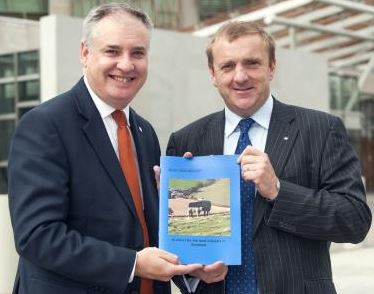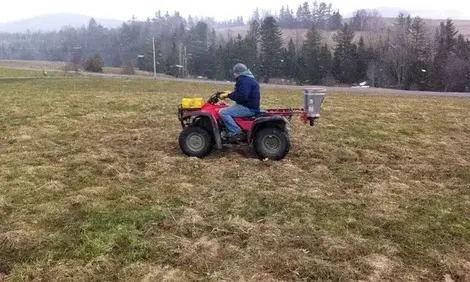



Scottish Beef Closer to 'Sustainable' Than Most
SCOTLAND – Only a few countries have beef systems close to being called sustainable but Scotland is one, says an industry report.Scotland’s beef sector is within ‘striking distance’ of an industry led definition of sustainability as laid out by the Global Roundtable for Sustainable Beef (GRSB), according to a beef vision until 2020 released this month.
This definition will rationalise McDonald’s beef sourcing policy from 2016.
Beef Vision 2020 underlined the country’s abundance of grazing land and rainfall as advantages in sustainable beef production.
Grass and rough grazing make up 80 per cent of Scotland’s agricultural land, the report outlined.
The product’s premium labels such as Scotch Beef and the high production costs are signals of an industry already able to perform under high protocol.
This already leaves Scotland as an already expensive place to produce beef, even within the context of the European Union, the report added.

Looking ahead, the industry aimed for a 19,000 tonne lift in annual production by 2020 at 185,000 tonnes.
The report targets an increase of five per cent beef cow numbers within five years and ten per cent within a decade.
This would stem a declining trend since 2006 which has seen national throughput fall 15 per cent and the national herd fall 50,000 head.
A 23 point action plan has been compiled to assist stakeholders in achieving this.
This is vital for the ‘powerhouse of Scottish agriculture’, said rural affairs and environment secretary, Richard Lochhead.
"It is our single biggest farming sector and makes up more than a quarter of Scottish agricultural output," said Mr Lochhead.
“That is why it is so essential that Government, industry organisations and beef producers work together to overcome the challenges the sector is facing - which include declining livestock numbers and low profitability – and to make the most of markets opening up for our world class beef.”
But as well as economic importance, the role of cattle in Scotland is essential for food security and the landscape.
This is according to Jim McClaren, Chairman of the Beef 2020 group which complied the report and recommendations to minimise carbon release per every kilo of meat produced.
"This can be achieved by managing animals more efficiently, essentially reducing death, disease and lack of productivity by paying yet more attention to breeding, nutrition and animal health", said Mr McClaren.
"This in turn reduces waste, minimises carbon footprint per kilogram of meat produced and reduces the pressure to take more land into production.
“It is also a key driver of business profitability, when one recognises that every loss through
emissions within a production system is a loss.”
He added that using ruminants to make protein is here to stay.
“The only contribution which rough grazing land can make to the production of food for humans is through the grazing of ruminants.
“This valuable protein source can only be converted into human edible protein by a ruminant which in turn dictates that ruminant livestock will inevitably play a long term key role in Scottish agriculture.”
Michael Priestley
News Team - Editor
Mainly production and market stories on ruminants sector. Works closely with sustainability consultants at FAI Farms



